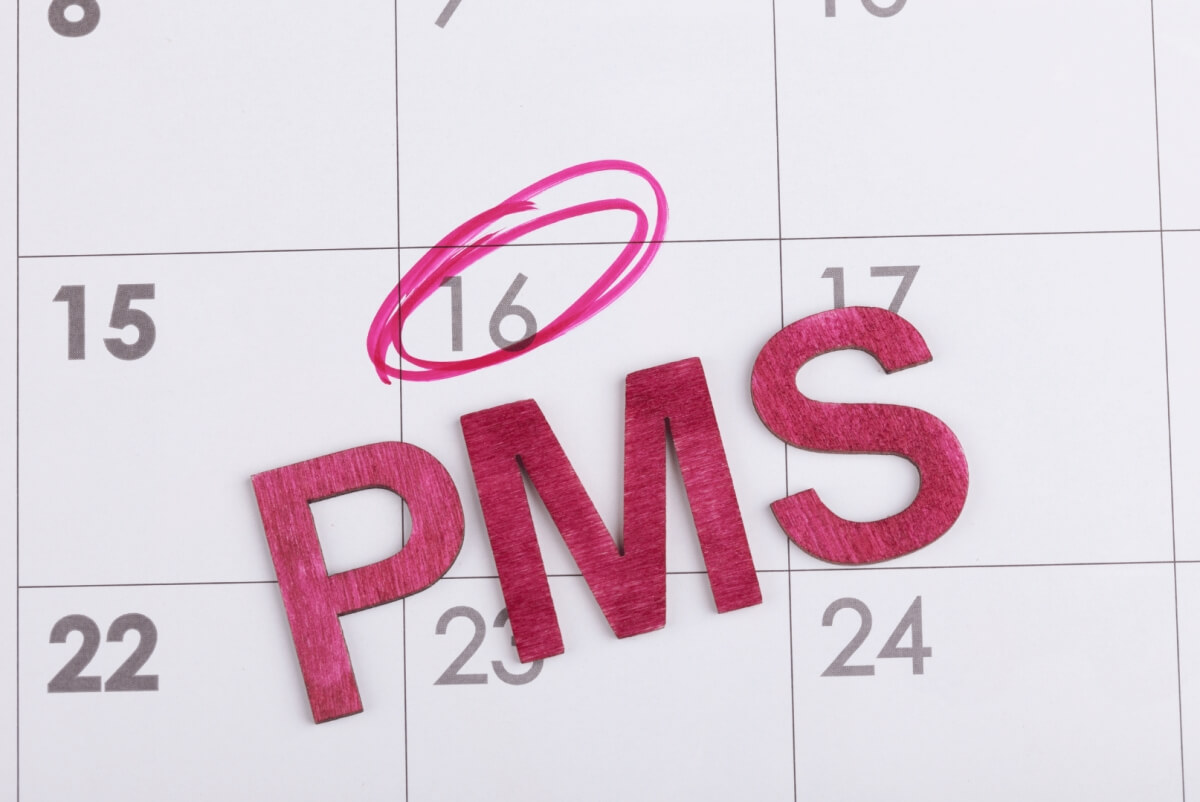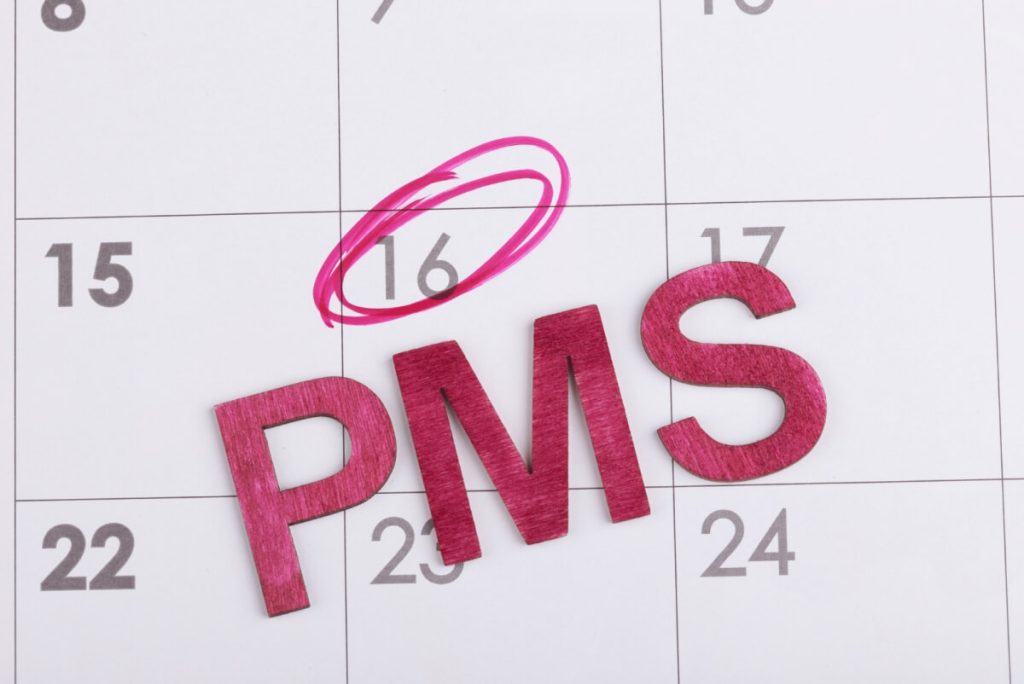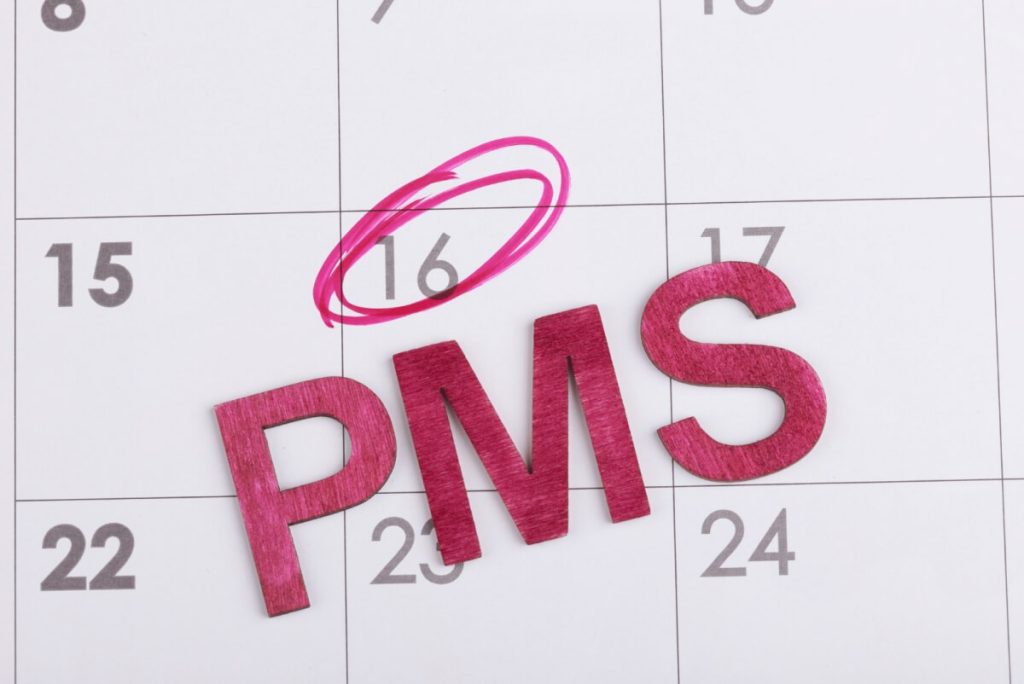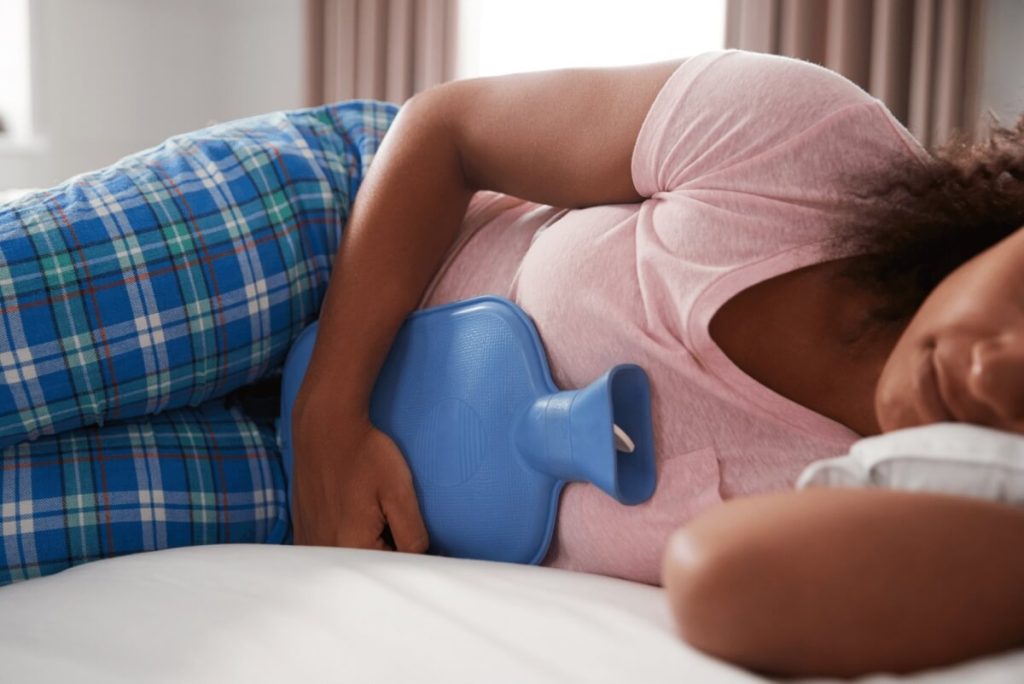
How Menstrual Cycles, PMS, And Changes In Women’s Hormones Affect Sleep


How Menstrual Cycles, PMS, And Changes In Women’s Hormones Affect Sleep
But for some, getting a good night’s rest can be hard, and potentially more so if you are a woman. Compared to men, women are more likely to report sleep issues including insomnia, daytime fatigue, and poorer sleep quality, despite the fact that research shows that women sleep longer. Menstrual cycles and women’s hormones can affect sleep quality.
You may notice that your sleep quality changes at different times during the month. For some women, these changes can be mild. But for others, they can be debilitating. These changes in sleep quality can also vary from woman to woman. The best thing to do is to track using tools such as menstrual tracking apps and devices that track your sleep quality such as the Oura ring. Understanding your body will empower you to improve your sleep, so that you can consistently maximize your sleep quality.

Menstrual Cycle Overview
In order to understand how your hormones can impact sleep, you first need to understand how they function.
The menstrual cycle involves a chain of activities that coordinate processes between the brain, ovaries, and uterus. It begins on the first day of bleeding and ends the day before your next period begins, with typical cycles lasting anywhere between 21 – 35 days.
The cycle can be divided into two distinct phases – the follicular phase and the luteal phase.
Follicular Phase
The follicular phase begins on the first day of bleeding and ends with ovulation.
- Follicle-stimulating hormone (FSH) is released from the brain and signals the ovaries to prepare for ovulation.
- Ovaries begin producing increasing amounts of estrogen and when high enough, signal the brain to release luteinizing hormone (LH).
- This spike in LH, called the LH surge, is what triggers egg release.
Luteal Phase
The luteal phase begins after ovulation and goes on until bleeding begins again.
- Once ovulation occurs, both estrogen and progesterone increase, which works to promote pregnancy if needed.
- If pregnancy does not occur, these levels decline and eventually cause the next menstruation to occur.
Specific Hormones And Sleep
Estrogen
Most disturbances to sleep tend to occur when estrogen levels are low, during the week prior to menstruation. With this, women report changes in mood, stress, and appetite which can all negatively impact sleep.
When estrogen rises, sleep quality tends to improve, which can have important benefits for health.
In one study, researchers found memory improvements following a nap in women near ovulation, when estrogen levels are high, compared to those at lower-estrogen phases of their cycle. They think this might be due, in part, to estrogen’s ability to bind receptors in certain areas of the brain involved in learning, memory, and decision making.
Progesterone
Progesterone is lowest on days 1-5 of your cycle, during menses. Low progesterone seems to be partially related to certain premenstrual symptoms that some women experience right before and at the beginning of period onset.
Progesterone levels are highest during the third week of the cycle, while estrogen starts to decrease. This hormone tends to have sleep-promoting effects, so during times when levels are high (especially following ovulation), sleep generally tends to improve. But, when levels fall towards the end of the luteal phase, sleep problems can arise.
Like estrogen, progesterone is thought to have a neuroprotective effect on the brain throughout the lifespan. In addition to facilitating ovulation, it can also promote sleep by stimulating the brain to produce GABA. GABA is a neurotransmitter that has relaxing effects on the brain, and higher levels seem to modulate sleep spindle activity, which can affect memory performance.
Caption: Sleep spindles are periods of fast electrical brain waves during sleep.
Testosterone
Testosterone increases during the second week of your cycle, along with estrogen. This hormonal surge can help you to feel more alert, but it can also affect your mood and stress due to increased brain arousal.
While not likely the culprit for sleep disturbances, research shows levels seem to peak just before REM sleep begins. When our sleep is disrupted, testosterone secretion is blocked, which potentially may have negative impacts on health.
Luteinizing Hormone (LH)
Luteinizing hormone, or LH, is the hormone responsible for ovulation. It is released in a pulse-like fashion from the brain throughout the cycle. LH pulse frequency slows during sleep in the early-to-mid-follicular phase of the menstrual cycle. During ovulation, there is a surge of LH, which can increase body temperature and may contribute to sleep disturbances.
Follicle Stimulating Hormone (FSH)
From the start of bleeding until ovulation, FSH rises to signal to the ovaries to prepare an egg to be released. The dominant follicle produces estrogen as it grows, which peaks just before ovulation occurs.
Sleep quality tends to deteriorate as FSH levels rise near the end of the cycle, just before period onset. This state of high FSH levels and lower estrogen and progesterone can contribute to premenstrual symptoms, which may keep you awake.
Why Can’t I Sleep On My Period? Menstrual Cycle Phases And Sleep

We think that fluctuating hormones throughout the menstrual cycle may contribute to the gender differences we see in sleep quality. The good news is, the better we understand how they alter sleep, the better-equipped we are to combat their effects and ultimately get the rest we need.
The rise and fall of reproductive hormones can impact both energy levels and sleep quality. Research shows that sleep disturbances become more pronounced during times when there are big shifts in hormone levels: puberty, pregnancy, and menopause. But during the reproductive years, subtle fluctuations can still cause issues with sleep quality.
Follicular Phase And Sleep
Estrogen and progesterone levels are lowest at the beginning of the cycle when your period begins. If you experience cramping and heavy bleeding during the first few days, this may impact your sleep.
However, as both estrogen and progesterone begin to build up in anticipation of ovulation, you may see some improvements. In the days leading up to ovulation, women tend to report an easier time both falling and staying asleep.
Estrogen makes the brain more responsive to serotonin, while some progesterone byproducts make the brain more sensitive to GABA (your relaxing neurotransmitter). These higher hormone levels may also promote higher melatonin levels.
Ovulation And Sleep
Ovulation, which takes place at the end of the follicular phase, may cause some sleep disruption. Estrogen promotes serotonin production, a neurotransmitter that increases libido and excitement. There are also sharp changes in body temperature during this time, due to a spike in LH and increased progesterone levels. This extra heat may keep you awake or reduce your sleep quality.
Luteal Phase And Sleep
Most sleep disturbances are reported during the mid-luteal phase, including higher reported rates of daytime sleepiness and more frequent nighttime awakenings.
Studies actually demonstrate specific sleep alterations that occur during this time. In particular, rapid-eye movement (REM) sleep seems to be disrupted. REM sleep is important in memory, emotional processing, and healthy brain development.
However, researchers have observed that non-REM sleep increases during the luteal phase. You get more sleep spindles (bursts of fast brainwaves). These spindles are associated with memory performance.
Specific Conditions
Premenstrual Syndrome (PMS)
PMS symptoms can vary widely between women. Those with more severe symptoms tend to report higher rates of sleep disturbances during the mid-luteal phase compared to the mid-follicular phase. Physical discomfort and mood changes during this time can make it harder to sleep well, even though you feel more tired.
Menopause
With menopause, we lose our natural ability to produce reproductive hormones, and this can lead to sleep disturbances. Erratic fluctuations in estrogen, progesterone, FSH, and LH lead to hot flashes and other vasomotor symptoms and can make sleep uncomfortable. These changes can make it hard to fall asleep and sleep well through the night.
What You Can Do

You may now be thinking that cycle-related sleep disturbances are out of your control. Blame it on the hormones, right? Wrong. There are many things you can do to ensure you get enough sleep, including:
- Maintaining a regular sleep schedule – this means trying to go to bed at the same time every night and waking up at the same time each morning.
- Follow these tips to entrain your circadian rhythm and maximize your sleep quality.
- Avoiding caffeine and alcohol in the afternoon and evening – both alcohol and caffeine can impact sleep cycle regulation.
- Ensuring an optimal environment – keeping your room cool and dark has sleep-promoting effects that can translate into an easier time falling, and staying asleep. Many women (and men) who struggle with heat in their bed find improved sleep quality with bed cooling devices such as the Chili Pad.
- Learning about your body can provide powerful data to help you optimize your sleep and health, even though you’re not trying to get pregnant. Start by charting your cycles, tracking your symptoms, sleep quality, and body temperature, along with how these respond to the changes you make to improve sleep quality. There are many free apps you can use for this purpose.
- Engaging in regular exercise – nothing beats a good workout to help burn off some extra energy and promote sleep
- Managing PMS symptoms by balancing your hormones – as we learned above, PMS can cause some major sleep problems. The good news is, there are options that can help. A naturopathic doctor can help identify diet and lifestyle root causes that throw off your hormones, and recommend natural treatments to re-balance them.
- Many menopausal women experience significant improvement in their sleep and wellbeing with hormone replacement therapy. Speak to your doctor to see if it could be right for you.
Check out our Sleep Bundle.The nutrients and building blocks in this bundle work with your body to support healthy relaxation and melatonin levels, to promote healthy sleep onset and quality.
References
- Brown AMC, Gervais NJ. Role of ovarian hormones in the modulation of sleep in females across the adult lifespan. Endocrinology. 2020;161(9). doi:10.1210/endocr/bqaa128
- Lancel M, Faulhaber J, Holsboer F, Rupprecht R. Progesterone induces changes in sleep comparable to those of agonistic GABAA receptor modulators. Am J Physiol. 1996;271(4 Pt 1):E763-72. doi:10.1152/ajpendo.1996.271.4.E763
- Iotchev IB, Kubinyi E. Shared and unique features of mammalian sleep spindles – insights from new and old animal models. Biol Rev Camb Philos Soc. 2021;96(3):1021-1034. doi:10.1111/brv.12688
- Mong JA, Cusmano DM. Sex differences in sleep: impact of biological sex and sex steroids. Philos Trans R Soc Lond B Biol Sci. 2016;371(1688):20150110. doi:10.1098/rstb.2015.0110
- Sun BZ, Kangarloo T, Adams JM, et al. The relationship between progesterone, sleep, and LH and FSH secretory dynamics in early postmenarchal girls. J Clin Endocrinol Metab. 2019;104(6):2184-2194. doi:10.1210/jc.2018-02400
- Kravitz HM, Janssen I, Santoro N, et al. Relationship of day-to-day reproductive hormone levels to sleep in midlife women. Arch Intern Med. 2005;165(20):2370-2376. doi:10.1001/archinte.165.20.2370
- Bixler EO, Papaliaga MN, Vgontzas AN, et al. Women sleep objectively better than men and the sleep of young women is more resilient to external stressors: effects of age and menopause. J Sleep Res. 2009;18(2):221-228. doi:10.1111/j.1365-2869.2008.00713.x
- Del Río JP, Alliende MI, Molina N, Serrano FG, Molina S, Vigil P. Steroid hormones and their action in women’s brains: The importance of hormonal balance. Front Public Health. 2018;6. doi:10.3389/fpubh.2018.00141
- Gilfarb RA, Leuner B. GABA system modifications during periods of hormonal flux across the female lifespan. Front Behav Neurosci. 2022;16:802530. doi:10.3389/fnbeh.2022.802530
- Cagnacci A, Paoletti AM, Soldani R, Orrù M, Maschio E, Melis GB. Melatonin enhances the luteinizing hormone and follicle-stimulating hormone responses to gonadotropin-releasing hormone in the follicular, but not in the luteal, menstrual phase. J Clin Endocrinol Metab. 1995;80(4):1095-1099. doi:10.1210/jcem.80.4.7714075
- Alonso A, Genzel L, Gomez A. Sex and menstrual phase influences on sleep and memory. Curr Sleep Med Rep. 2021;7(1):1-14. doi:10.1007/s40675-020-00201-y
- Baker FC, Driver HS. Self-reported sleep across the menstrual cycle in young, healthy women. J Psychosom Res. 2004;56(2):239-243. doi:10.1016/S0022-3999(03)00067-9
- Gervais NJ, Mong JA, Lacreuse A. Ovarian hormones, sleep and cognition across the adult female lifespan: An integrated perspective. Front Neuroendocrinol. 2017;47:134-153. doi:10.1016/j.yfrne.2017.08.002
